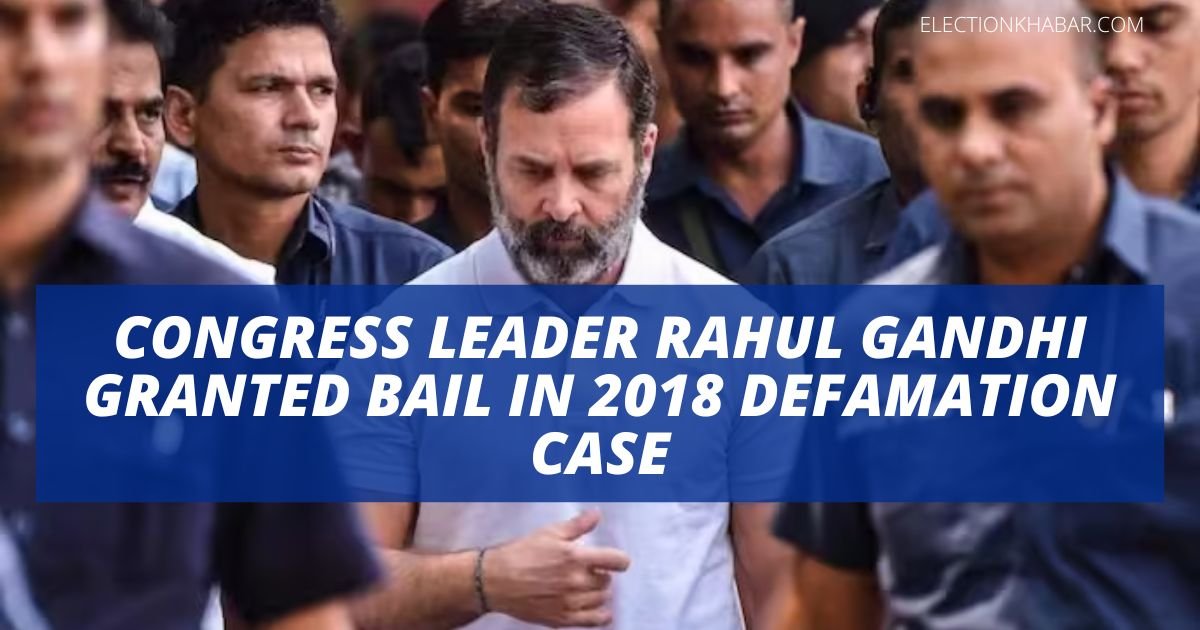A district court in Uttar Pradesh’s Sultanpur granted bail to Congress party leader Rahul Gandhi on Tuesday in a defamation case dating back to 2018. The case alleges that Gandhi made inflammatory remarks against current Union Home Minister Amit Shah during a press meet four years ago.
Gandhi’s lawyer argued innocence on his client’s behalf, claiming no defamatory statements were made. But the prosecution refuted this defense, stating that the charges fall under Section 500 of the Indian Penal Code, which covers punishment for defamation yet allows for bail.
The judge set Gandhi’s bail at Rs 25,000 along with two separate sureties of the same amount. His lawyer also submitted a personal bond of Rs 25,000 as directed by the court.
Case Harks Back to Murder Allegations Against Shah
The criminal complaint was originally filed by Vijay Mishra, a member of the ruling Bharatiya Janata Party (BJP), on August 4, 2018.
His grievance stems from comments Gandhi made at a Bengaluru presser earlier that summer, when Karnataka was holding state elections. Seeking to discredit the BJP’s campaign promises, the Congress leader accused them of double standards – claiming to support honest politics while their party president (Amit Shah at the time) was an “accused in a murder case.”
Gandhi was referring to Shah’s discharged role in the 2005 Sohrabuddin Sheikh alleged fake encounter. The case dates back to when Shah served as Home Minister under then-Gujarat Chief Minister Narendra Modi. Despite murky details, Shah was ultimately absolved of murder charges by a CBI court in 2014.
Political Theater or Principled Stand?
Reacting to Gandhi’s bail, the original complainant Vijay Mishra told media that calling the BJP president a “murderer” was unjustified. Other BJP members also took umbrage at the Congress leader’s remarks.
However, Gandhi’s supporters see his statements as a principled political stand against injustice rather than needless defamation. They believe Shah’s discharge in the murder case was more a function of his political clout than proof of innocence.
Ultimately, this long, drawn-out legal squabble between BJP and Congress leaders may say more about partisan politics in India than any quest for justice. As Gandhi continues his high-profile Bharat Jodo Yatra seeking to unite the country, this defamation case illustrates how national unity remains a distant dream.
Gandhi Skips Court Date Due to Yatra
Notably, Gandhi failed to appear at the last January 18th court hearing in this case due to scheduling conflicts with his ongoing unity march. The judge then issued a stern summons for him to present himself in person or face consequences.
Gandhi finally complied on Tuesday, taking a one day break from his months-long yatra that has seen him walking over 3,500 km already. He even resumed the march later that afternoon, seeking to build momentum with stops in the key political state of Uttar Pradesh ahead.
But this defamation case also shows how legal troubles will continue nipping at Gandhi’s heels – whether due to politics or principle. For a leader aspiring to become Prime Minister one day, it remains an inconvenient distraction.
